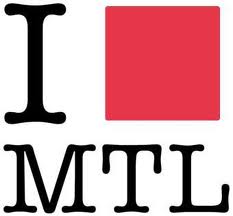Sitting in the living room of a friend’s Mile End apartment just shy of 8:00pm of Thursday, I am called into the street by the deafening sound of clanging pots and pans.
On the residential street lined with Montreal’s classic triplex townhouses, people of all ages are gathering with their cookware. Children clang at the doorstep of their friends calling to them to come out.
The now nightly “casseroles” are the latest form of popular outrage to premier Jean Charest’s new special law that curbs freedom of assembly and association rights, in a bid to break three months of social unrest.
As I wander around the block, I hear parents, children, students and seniors chant in a sing song voice “we don’t give a damn *clang* *clang* *clang*, about the special law” and “if you’re against the hike …. *clang* *clang.*”
Then spontaneously, the crowd starts marching. What was dozens quickly turns to hundreds as neighbors come down from their balconies.
I unexpectedly bump into one of my old McGill profs – she taught me Philosophy of Existentialism. “I just live around the corner from here and didn’t expect this. It’s just amazing,” says the woman who taught me about the theorists behind Paris’ 1968 student revolt.
As I look at my twitter feed, I realize these protests are happening throughout the city. Later in the evening, amongst a crowd of thousands banging posts and pans in the city’s north end Jean Talon market, I notice police have tweeted that there are ‘many protests in Montreal and we can only follow two.’
The outpouring – at one point after several large marches intersect it seems to reach around 10, 000 – is a direct response to the kettling and mass arrest of over 500 on Wednesday during the downtown protest. Students credit the idea of nightly marches to the ones that brought down the East German Soviet state in 1989.
That crackdown carried eerie similarities to the G20 crackdown on protests in front of Novotel Hotel in Toronto, with riot police cordoning off a sizable chunk of the protest for mass arrest.
Still, I run into many of those who were released in the earlier hours of Thursday morning, back on the streets tonight.
Awestruck by this unplanned mass response, I remember what CLASSE (the largest association of striking students) spokesperson Gabriel Nadeau-Dubois told me earlier. “This is primarily a movement of refusal,” he said.
Students, he reminded me, are using examples set by Spain’s Indignado’s and Occupy Wall Street to shape the expanding struggle.
“Every street is Wall Street,” Amir Khadir, leader of the young leftwing party, Quebec Solidaire, tells me walking his bike amongst the thousands just after 11:30pm, as I pass him a lighter for his cigarette. The lone Member of the National Assembly for his party, he tells me that the Quebec unrest is a popular uprising “not only about tuition now, but about equality and social justice.”
Leaning on his bike as he walks with camera flashes all around, he describes the movement as demanding to take back power from a corrupted and un-representative political elite.
When I point out to him that many students don’t want an election because they don’t see any tangible promise coming from electoral politics, he smiles. “That is why we are a party that fights both in the streets and in the National Assembly,” he says.
This movement may be drawing on global influences – Paris 1968, the Arab Spring, Occupy Wall Street, European anti-austerity movements, etc – but it is still fundamentally Quebecois. It’s talent has been to pool tactics and inspiration from elsewhere to create a crisis around inequality at home.
Jesse Rosenfeld is a Toronto-based journalist.
This article was originally published in NOW Magazine and is reprinted here with permission.
Cultivate Canada’s media. Support rabble.ca. Become a member.




